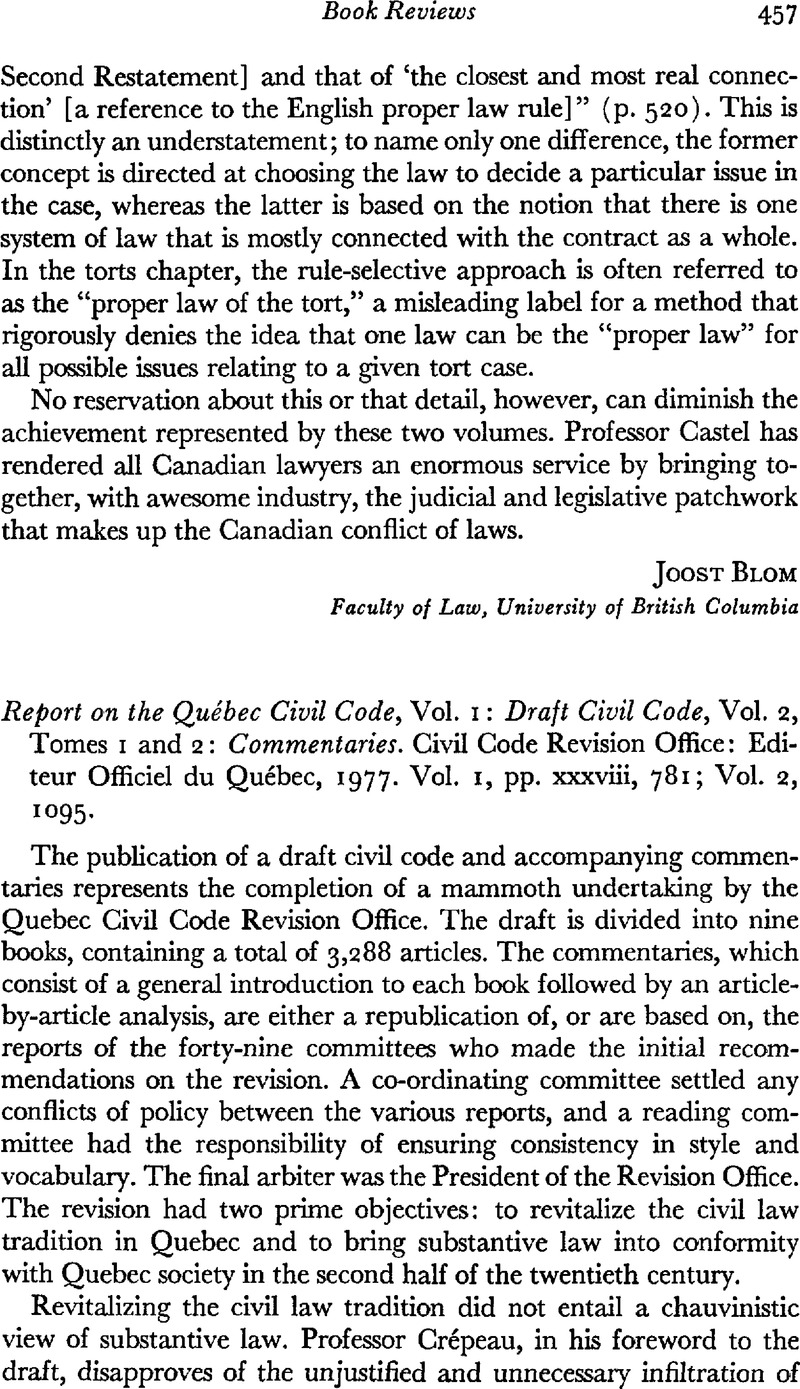No CrossRef data available.
Article contents
Report on the Québec Civil Code, Vol. 1 : Draft Civil Code, Vol. 2, Tomes 1 and 2 : Commentaries. Civil Code Revision Office : Editeur Officiel du Québec, 1977. Vol. 1, pp. xxxviii, 781; Vol. 2, 1095.
Published online by Cambridge University Press: 09 March 2016
Abstract

- Type
- Book Reviews
- Information
- Canadian Yearbook of International Law/Annuaire canadien de droit international , Volume 16 , 1979 , pp. 457 - 462
- Copyright
- Copyright © The Canadian Council on International Law / Conseil Canadien de Droit International, representing the Board of Editors, Canadian Yearbook of International Law / Comité de Rédaction, Annuaire Canadien de Droit International 1979
References
1 Despite its merits one might question some aspects of this organization. Might not succession have come after property; and might not succession, property, and publication of rights have been combined in a single book?
2 This comment must be tempered by the unfortunate fact that this is a review of the English translation of the draft. To the English eye and ear the translation, with some exceptions, retains the elements of clarity and simplicity.
3 The striking of a balance between what is or what should be contained in the code and what is or should be left to legislation or judicial decision is obviously a difficult one. On occasion the solution of the draft may be questioned. Art. 249 of Book I provides: “The members of a legal person are personally and jointly liable for the debt of that person, subject to express provision of law.”
The commentary recognizes that this general rule will be of limited application, and is in some degree simply the confirmation of a rule founded in history (page 84). Might the code not have recognized what today is probably the general rule? Similarly, if modern legislation on leases of immoveables, protective as it is of tenants, is deserving of a place in the code might one not also include modem consumer legislation (see comment at 562).
4 But the Revision Office apparently fears such a sweeping change will not be accepted; see Vol. 2, at 362 et seq.
5 Book 5, Art. 9 (and see comment at 554). An arguable case might also have been made for deciding that there was no need to require that there be an object of the contract: compare Zweigert and Kotz, An Introduction to Comparative Law, Volume 2: The Institutions of Private Law 7 (English translation by Weir, 1977).




